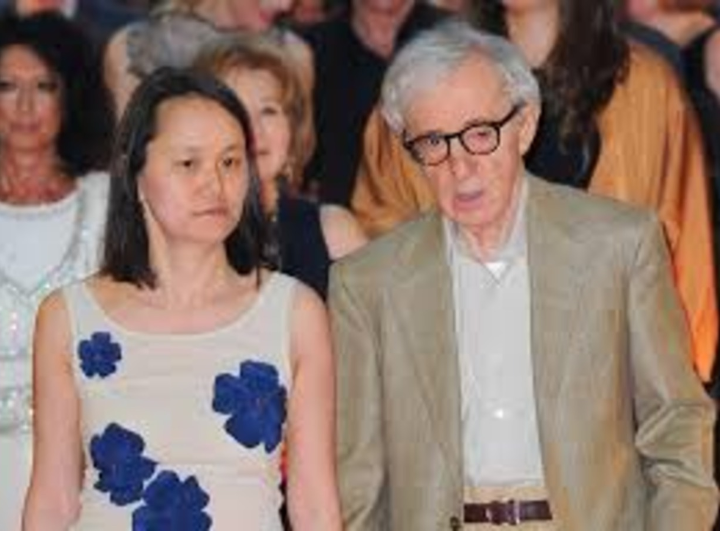For decades, the life of Harlene Rosen has been largely defined by her brief marriage to one of Hollywood’s most famous and controversial filmmakers, Woody Allen. Despite her early connection to fame, Harlene Rosen’s story is much more than a footnote in someone else’s life. She is a woman who lived through public scrutiny, personal challenges, and social change, all while maintaining a sense of dignity and privacy. In this article, we will explore her life beyond the shadows, uncovering who she was, her personal journey, and the legacy she has left behind.
Harlene Rosen’s Early Life: Before the Spotlight
Harlene Rosen was born in 1939 in the Bronx, New York, a city where diverse cultures and ideas blended into a vibrant and sometimes chaotic environment. Raised in a Jewish family, she grew up during a period marked by rapid social changes, including the aftermath of World War II and the beginning of the civil rights movement in America. Her upbringing in a working-class neighborhood shaped her character, instilling in her a strong sense of resilience and independence.
Education and Personal Aspirations
Though much of Harlene’s early life remains private, it’s clear that she had intellectual ambitions. Rosen was known to be academically gifted, with a particular interest in literature and the arts. She had plans for her own future—dreams of pursuing higher education and perhaps making a mark in her own right. Yet, as fate would have it, her path took a turn that would lead her into the public eye much sooner than anticipated.
Meeting Woody Allen: A Love That Shaped Her Early Years
Harlene Rosen met Woody Allen, then still Allan Stewart Konigsberg, when she was only 17 years old. At the time, Allen was a struggling writer and comedian, known primarily for his stand-up work and comedic writing for television shows like Your Show of Shows. Despite the age difference—Allen was 21 at the time—the two quickly became close, sharing a love of intellectual humor and a desire for creative expression.
A Young and Unlikely Marriage
At 19, Harlene married Allen, an unusual choice for someone so young. ZThe marriage would become the focal point of much of Allen’s early material, and not always in a flattering light.
Allen famously referred to Harlene in his comedy routines as “the dread Mrs. Allen,” a nickname that reduced her identity to a comedic punchline. His public jokes about their marriage—often deeply personal and even cruel—only further complicated Harlene’s life during and after their divorce.
The Divorce and Its Aftermath: Reclaiming Her Identity
In 1962, Harlene and Woody Allen divorced, ending a tumultuous chapter of their lives. For Harlene, this was a painful period, one that forced her to reevaluate who she was outside of her marriage.
The Lawsuit That Changed the Narrative
The turning point came when Harlene filed a lawsuit against Allen for slander in 1964. In his act, Allen had made a number of disparaging remarks about her, including a story about how she had been sexually assaulted by a “large Canadian.” While intended as humor, the remarks were both false and deeply damaging to Rosen’s reputation. The lawsuit was settled out of court, but it marked a significant moment for Harlene. It was her way of reclaiming control over her own narrative and standing up to the public mischaracterization she had endured.
A Quiet Life After Fame: What Happened to Harlene Rosen?
After her marriage to Woody Allen, Harlene Rosen largely disappeared from the public eye, choosing a life of privacy and introspection. Unlike many who find themselves in the orbit of fame, she did not seek to capitalize on her connection to a famous ex-husband. Instead, she focused on rebuilding her life away from the media’s gaze.
Remarriage and Family Life
Harlene eventually remarried, finding stability and happiness in a quieter, more private relationship. Her second marriage was far removed from the scrutiny that characterized her first, allowing her to live a more serene and fulfilled life. While details about her family remain scarce—Rosen has always valued her privacy—it’s known that she took great pride in her personal relationships, including those with her children.
Legacy: A Woman of Strength and Dignity
Yet, she navigated these challenges with grace, choosing to live life on her own terms rather than succumbing to the narratives others tried to impose upon her.
A Silent Influence on Woody Allen’s Work
While Harlene may have stepped out of the public spotlight, her influence on Woody Allen’s early work is undeniable. Allen’s early portrayals of neurotic, troubled marriages and the complexity of male-female dynamics reflect much of the emotional turbulence from his time with Rosen.
While she was undoubtedly a muse for some of Allen’s early material, her story is that of a woman who refused to let someone else define her identity.
A Cautionary Tale and a Source of Inspiration
For many, Harlene Rosen’s life serves as a cautionary tale about the dangers of living in someone else’s shadow. Yet, her life is also a source of inspiration. Despite the challenges she faced, Harlene Rosen never allowed herself to become a victim of her circumstances. She fought for her dignity, reclaimed her voice, and built a life that was truly her own.
Final Reflections: Harlene Rosen’s Enduring Impact
Harlene Rosen may not be a household name, but her story resonates with anyone who has ever struggled to step out from behind someone else’s shadow. In a world that often seeks to define us by our relationships or our proximity to fame, Harlene’s journey reminds us of the importance of owning our own narratives.
Her legacy, though quiet, is profound. It’s a legacy of reclaiming personal agency in the face of adversity, of seeking fulfillment in one’s own pursuits, and of living a life defined by inner strength rather than external validation.








